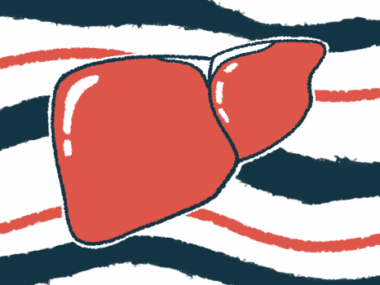Mononucleosis linked to higher risk of developing PSC: Study
Findings suggest preventing mono could reduce likelihood of PSC
Written by |

Note: This story was updated Aug. 8, 2025, to correct that infectious mononucleosis was linked to a 4.6 times higher risk of future PSC, not a twelvefold risk.
People who have experienced mononucleosis, or mono, which is caused by an infection of the Epstein-Barr virus (EBV), are nearly five times more likely to develop primary sclerosing cholangitis (PSC) than those who have not, a study reports.
“Our findings suggest that if we can prevent infectious mononucleosis, we may significantly reduce the likelihood of developing PSC,” Brian K. Chung, PhD, one of the study’s authors at the University of Oslo’s Norwegian PSC Research Center, said in a university news story.
Analysis of immune T-cells showed increased recognition of EBV in people with PSC. Patients also showed increased anti-EBV responses from immune B-cells, which produce antibodies against potential threats.
Determining the precise link between EBV and PSC will require further research, but these results suggest interventions targeting EBV may impact PSC.
Other autoimmune diseases, such as multiple sclerosis (MS) and Sjögren’s disease, have been linked to EBV infection. EBV infection doesn’t always cause mono, and the virus affects 95% of adults at some point in their lives.
The study, “T and B cell responses against Epstein–Barr virus in primary sclerosing cholangitis,” was published in Nature Medicine.
Results suggest different immune processes may be at play
PSC is a chronic, autoimmune form of cholangitis, a disease characterized by inflammation in the tubes that carry the digestive fluid bile from the liver to the intestine.
“The cause of PSC is unknown, but it has long been suspected that people who develop PSC have changes to their immune system that contribute to the development of the disease,” Chung said.
Chung and an international team of researchers used various methods to examine these immune changes. They focused on T-cells, which help fight infections and regulate the activity of other immune cells, and B-cells, which produce antibodies against invaders.
In the first analysis of the study, they profiled T-cells in 504 people with PSC and 904 healthy controls. T-cells retain a memory of past infections, which is important in long-term immunity. By cataloging receptors on the surface of T-cells, the researchers can identify groups of cells with the same receptor combinations.
“By using this technique, we saw that patients with PSC have a significantly higher percentage of T cells recognizing EBV, compared to healthy controls,” Chung said.
In a second sample of 120 people with PSC and 202 healthy controls, the team looked for differences in B-cell responses, and found a greater proportion of B-cells producing antibodies against EBV among patients. This reflected “a significantly higher prevalence in anti-EBV responses in people with PSC,” the team wrote.
Anti-EBV antibodies that showed higher abundance in the blood of PSC patients were also found at a higher frequency in liver samples from three people with PSC. In addition, more B-cells in these liver biopsies produced EBV-targeting antibodies than B-cells from liver samples of people with primary biliary cholangitis, another chronic form of cholangitis, suggesting different immune processes at play.
Infectious mono linked to nearly 5 times higher risk of PSC
To assess a potential link between infectious mononucleosis and PSC, the team looked at data from a database of more than 116 million electronic health records from the U.S.
They found having infectious mono was significantly linked to a 12 times higher likelihood of having PSC — this association was higher than the twofold increased chance of MS based on these data.
However, this link was irrespective of whether PSC developed before or after infectious mono, meaning that the data don’t necessarily indicate that EBV causes PSC, the team noted.
When specifically looking at data where infectious mononucleosis would precede PSC, the researchers found a 4.6 times higher risk of PSC, Michel V. Hadijhannas, PhD, one of the study’s authors at Kiel University and University Hospital Schleswig-Holstein, in Germany, said in an email statement to BioNews.
“This, together with our findings on T and B cells, strongly supports an immunological link between Epstein-Barr virus infection and PSC,” he said.
The researchers wrote, “Further studies are needed to elucidate potential mechanisms by which infectious mononucleosis and EBV infection contribute to PSC development.”
These findings build on previous work by researchers at the Norwegian PSC Research Center, which showed many genetic variants linked to a higher PSC risk are related to the immune system’s recognition of the EBV.
These results add to growing evidence of links between EBV and autoimmune diseases.
“Given that EBV is linked to so many bad outcomes, there has been a long-standing interest in developing a vaccine against the EBV, but none have been successful thus far,” Chung said.
In theory, an EBV vaccine might prevent diseases like MS and PSC from developing.
“It would be great to have a vaccine that ensures we have a strong immune system ready to fight EBV at all times. And a treatment that kills EBV-infected B cells, so that there is less of virus around to cause trouble,” Chung said.




